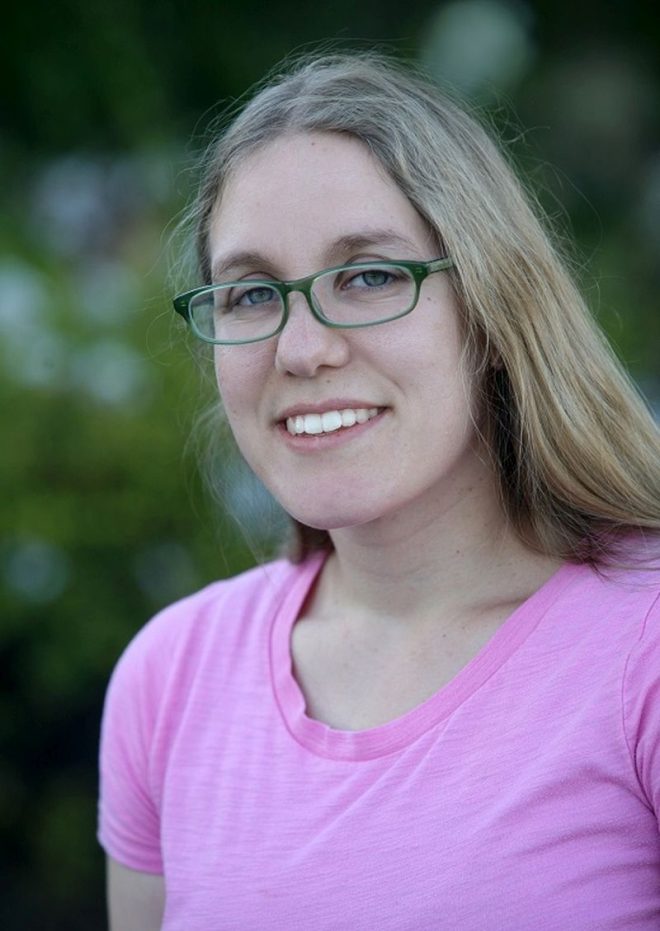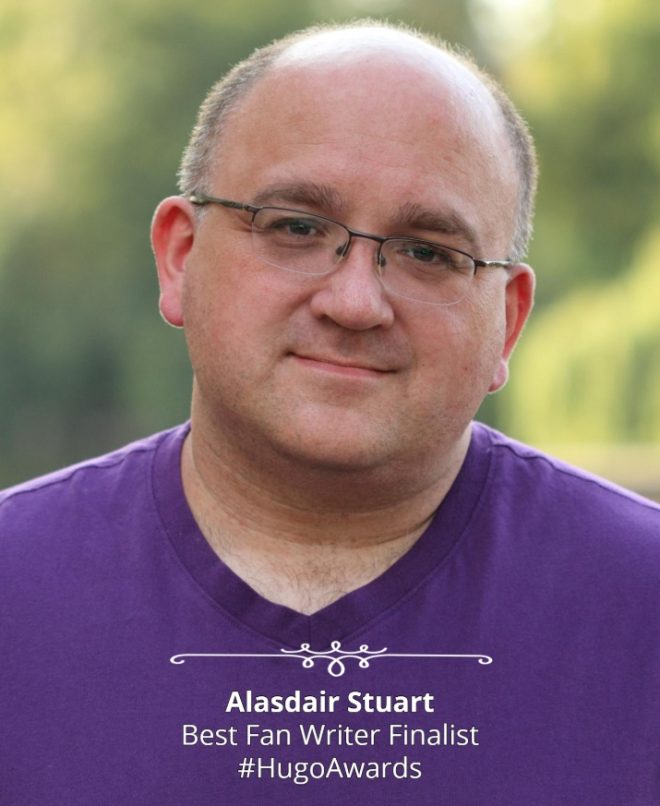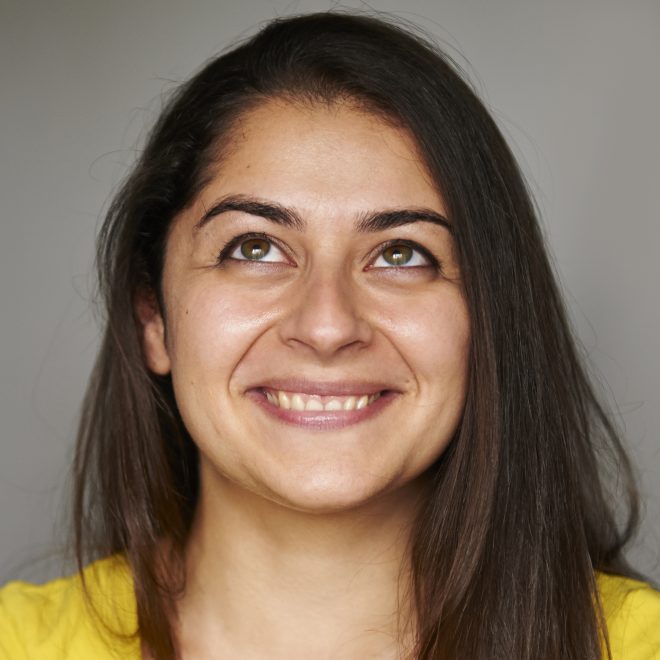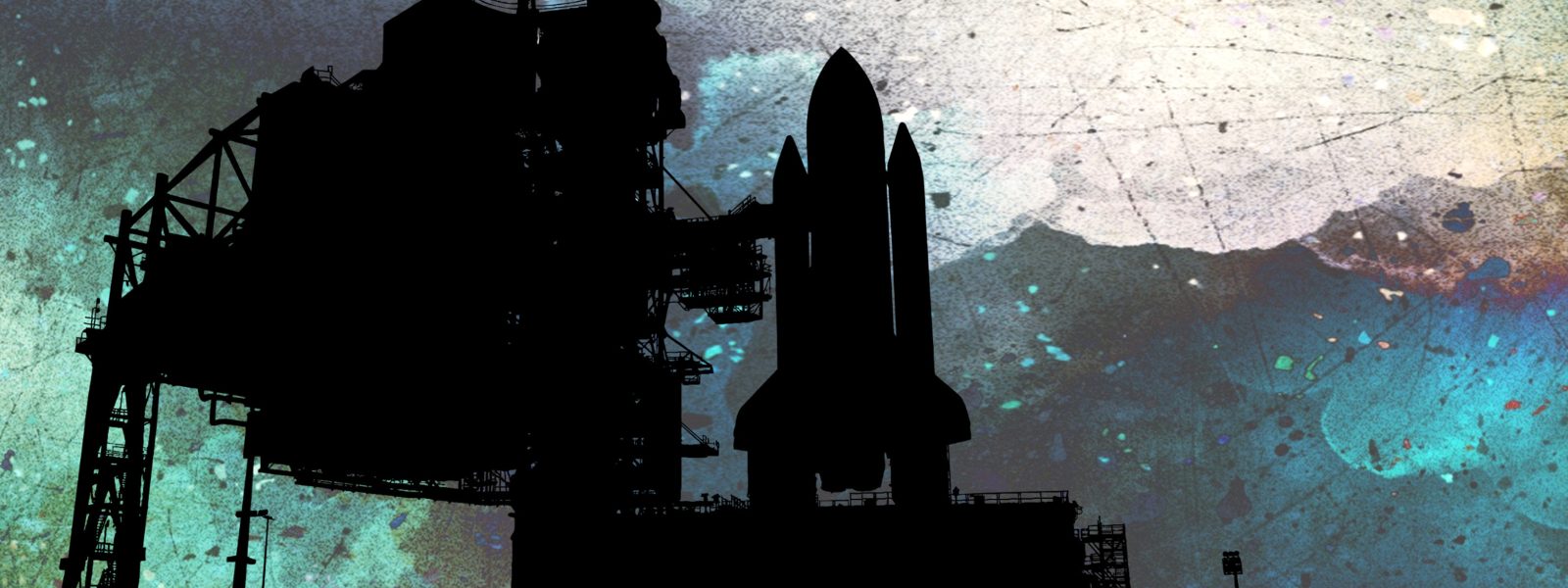Cast of Wonders 599: Little Wonders 45 – Future Legacies
Hitch-Hiker, Guide
by Alasdair Stuart
Frank Duffy saw the astronaut on a gift stall on his way to work one day. A little guy, white and gold plastic, pointing at the sky with all the confidence of the non-sentient. Frank bought it on a whim, and it stayed on his monitor until he left a few years later.
Beccy Duffy found the astronaut when she was going through her grandad’s things. It was an awful job, the trawling of a life. Everything was a treasure and every treasure had spines and sharp edges filled with memories. She and Ruth had taken to keeping a box of tissues with them as they worked in separate rooms. Find a thing, make a decision, have a cry, repeat.
Sometime around noon Beccy found the astronaut and had a visceral flash of watching it as her grandma taught her how to code at Frank’s old machine. She put it in her pocket.
Ruth Duffy found the astronaut in her sister’s clothes when she was putting together a care package. Beccy was working on one of the refugee barges. The work was like the barge; unnecessary, banal, cruel. The PM had talked about closing the barges down, about a kinder UK. That had been two years ago.
Beccy found the astronaut on clean up. She’d given it to Aziza because she had nothing else to give her. She’d locked eyes with the terrified little girl, made a ‘WOOSH’ noises and launched the astronaut upward. Aziza had giggled for the first time since she’d been brought aboard. Beccy had left the astronaut with the little girl, and it had sat with her in every checkup over the next few years. Aziza had left the barge as one of Becky’s assistants, six years older, accent hammered into Bradfordian and every inch of her frame humming with the same belligerent kindness Becky sometimes still had. She smiled, picked the astronaut up and put it in an envelope. The next day she mailed it to Aziza’s new address and emailed her the footage of the barge being scuppered. Becky had been the last one off. She’d been the last one filming. She wanted to make sure the thing died.
Nathan Shen had the astronaut pressed into his hand by his mother-in-law on a rainy day in Bradford Station. Nathan was lanky and laconic and when he’d first signed up, everyone had thought he was kidding. Then an idiot. Then everyone had argued with him. Everyone but Grandma Aziza. She met him at the train station with a bag of food and a hug and pressed the astronaut into his hands. ‘Time for launch.’ She’d waved until he couldn’t see her anymore.
Blake Shen was given the astronaut in their graduation ceremony. Their grandfather, thin now but still with that same relaxed gait and wry sense of humour had handed it over in a velvet lined box. Blake opened it and smiled. Their grandfather had smiled wider.
‘The family hitch-hiker. Your turn to give him a ride.’
Blake Shen’s bad knee creaked when they knelt and it wasn’t just the servos on the suit. It had taken four years of labour that had left marks on them all but now, Pluto Station was open for business. The catapult, a ten-mile-long impossibility, gleamed in orbit, ready to hurl ships to the stars. But Blake had faced the astronaut the other way, towards the arrivals airlocks. He set the little toy into a stand, arranged the plaque under it and then took a photo.
WELCOME TO PORT DUFFY.
AZIZA SAYS HI.
Seeds Travel
by Beth Goder
Hajar piloted the mech over vast mountains, through meadows lush with grasses that were almost like those of Earth, except for their orange tips. She traveled through dense forests and snowscapes heavy with wind.
The mech was like an extension of her body, never tiring, wrapping around her like a seed pod protecting its cargo.
Hajar reviewed the data from the soil samples gathered by the mech’s feet. A rich composition of minerals in this region, but not enough nitrogen for farming.
In her pocket rested a blue stone.
When Hajar was six, back on Earth, she brought her father a seed. “What’s this?” she asked.
He scooped her onto the kitchen counter and kissed her nose. “That’s a boxelder maple seed. Look at how it’s held within this thin layer, like a paper coat.”
“How did it get here?”
Her father told her that seeds travel by wind and water, in the hard shells of nuts and blankets of fruit, carried on the coats of animals or mashed within their digestive tracts, pulled underground by insects, buried by squirrels, scattered by the dual forces of pressure and gravity.
Blackberry plants stretch their creeping vines, plunging spines into the earth. Coconuts embark on sea journeys, carrying the weight of meat and milk, to germinate on the sands of far beaches. Dandelion seeds dance in the air, while the boxelder maple embraces its seeds in thin wings, to glide gently down.
Hajar triggered the wings on the mech and leapt from a cliff, gliding in large loops until she touched down. The hands of the mech tested the air for breathability and temperature, and searched for spores.
Forward went the mech. She read messages from the others. Nathaniel was heading north from a desert in the western hemisphere, while Denisa had found a promising sector near the equator. Arwa had done a fascinating preliminary survey of insects in a grassland biome. No one had heard from Suraya, aside from a terse message that she had touched down and was exploring, but she tended to go quiet on bad days.
They all carried their own secret griefs, ready to bloom. Nathaniel refused to listen to Debussy, except for days when he would listen to nothing else, and the melody of “Clair de Lune” floated across the ship. Arwa had a singular teacup, light green and decorated with fish, which she hid away in her quarters. Every member of the crew had left someone behind. They carried their grief in different ways: in photographs and letters, in knitted scarves and handwritten recipes, in ordinary objects like teacups and brooms, chipped pots and blue stones.
The mech marched onward under an alien sunset. When it grew too dark to see, Hajar halted the mech. She took the blue stone out of her pocket and turned it over. Before she left Earth, her father had folded the stone into her hands, his faded green hat tipped back, his hands smelling of cinnamon from baking. The stone had come from his garden, pried up from the mud. “Find a new place for it,” he’d said, planting those words in the space meant for goodbyes. This was what she brought from Earth, what she carried.
Today, the stone felt rough against her fingers. She thought of her father, imagined the sound of the blender churning his breakfast, the worn leather of his hiking boots, his collection of rocks scattered over geology books on the kitchen counter.
Eventually, she slept, the stone clutched in her hand.
For her thesis, Hajar studied seed dispersal strategies of Oenothera deltoides, the bird-cage plant of Californian deserts.
The plant travels like this: as dunes shift, the roots are exposed. Shade melts away, leaving the plant under the light of an intolerable sun. The plant dies, curling its roots over itself, a bird cage, a wicker ball. Wind pulls the plant kilometers from its home. When the plant finds shelter from wind, seeds spill out from the lattice.
New plants rise, phoenix-like, from the husk.
The mech emerged in a clearing blanketed with grass. Three-petaled flowers bent in the wind.
The soil readings were good. A river rushed by to the east, the water potable.
Hajar sent a message to the others. A habitable zone to add to the list. She imaged all of them out in the meadow, tilling the soil, constructing houses from the durable bio-plastic they’d brought.
Hajar emerged from the mech. For the first time, she felt the planet’s air on her face. The wind carried the smell of sun-simmered grass and wet soil.
Next to her, a tree thick with seeds wrapped in flexible coating, like a boxelder maple.
Once, her father had told her how seeds travel—to arid deserts and rich soil, through woodland and tundra, across oceans and rivers. By centimeters or kilometers, they go.
Not all of them survive.
Seeds travel, tumbling, falling, swept along until they cannot travel farther.
Where they land is home. They put down roots, they grow.
She wished her father was there. Seeds, she would tell him, are designed to travel, to seek out habitable spaces, leaving behind their progenitors, pushing forward into the wide future.
Hajar slipped the blue stone from her pocket. This place felt right, already full of life. How many seeds were already under the soil, waiting to grow?
She clutched the stone close, then buried it in the soft earth.
About the Authors
Beth Goder

Beth Goder is an archivist and author. Over 40 of her short stories have appeared in venues such as Escape Pod, Podcastle, The Magazine of Fantasy and Science Fiction, Analog, Clarkesworld, and Horton’s The Year’s Best Science Fiction & Fantasy, as well as here at Cast of Wonders. You can find her online at http://www.bethgoder.com.
Alasdair Stuart

Alasdair Stuart is a professional enthusiast, pop culture analyst, writer and voice actor. He co-owns the Escape Artists podcasts and hosts their weekly horror fiction show, PseudoPod. He is an Audioverse Award winner, a multiple Hugo Award and BFA finalist, writes the multiple-award nominated weekly pop culture newsletter, The Full Lid, blogs at alasdairstuart.com, streams on Twitch, and can be found on social media @AlasdairStuart.
About the Narrators
Leila Al-Jeboury

Leila is an actor and writer from London. It’s unlikely you have seen her in anything, unless you happened to not blink during a particular episode of Silent Witness about 8 years ago. Leila is currently in a children’s theatre show called Kidocracy, which goes to schools and teaches kids about democracy, so we should hopefully have a decent government in 20-30 years’ time. When she’s not training up the next generation, Leila can be usually found shouting at her kitchen utensil draws and asking her daughter to put her shoes on.
Alasdair Stuart

Alasdair Stuart is a professional enthusiast, pop culture analyst, writer and voice actor. He co-owns the Escape Artists podcasts and hosts their weekly horror fiction show, PseudoPod. He is an Audioverse Award winner, a multiple Hugo Award and BFA finalist, writes the multiple-award nominated weekly pop culture newsletter, The Full Lid, blogs at alasdairstuart.com, streams on Twitch, and can be found on social media @AlasdairStuart.



